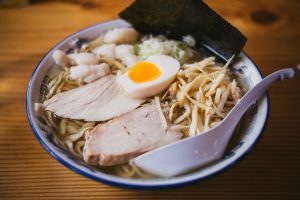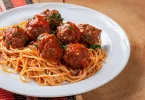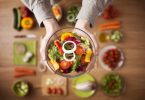An ulcer is a disease that leads to a deterioration in the functioning of the digestive system as a whole. During the stomach ulcer, you should carefully consider your diet, since eating even healthy, at first glance, foods can worsen the condition of the patient. This article discusses some vital health tips for ulcer patients and diets that can help.
Therapy of peptic ulcer of the stomach and duodenum is a complex process, one of the main parts of which is a full-fledged diet. It consists of a balanced meal throughout the entire period of the disease. The strict division of the patient’s diet on “permitted” and “forbidden” products increases the chances of recovery, accelerates scarring of ulcers.

Health Tips for Ulcer Patients
The main goal of nutrition in ulcers is to normalize the digestion process and stimulate the regeneration of the mucous membrane that lines the stomach by sparing the injured organ. So, how to treat a stomach ulcer? Let’s take a closer look.
The basic principles of stomach ulcer diet treatment
- The creation of the greatest rest of the stomach and duodenum mucous membrane.
- All food should be consumed in the pureed form.
- Inadmissibility of the large volumes of food introduction in one go.
- Frequent and fractional nutrition.
- Exclusion of too cold and too hot food (not lower than 15 ° С and not higher than 65 ° С).
- Limitation of salt to 10-12 g per day.
- You can take a small amount of coconut oil for stomach ulcers. Find some details of consuming it at the best keto supplements reviews.
- High nutritional value of the diet (proteins, fats, carbohydrates, mineral salts, vitamins A, B, C). The chemical composition of the antiulcer diet is 100 g of protein, 100-110 g of fat, 400-450 g of carbohydrates. Calorie intake is 3000 – 3200 kcal.
It is necessary to eat food in a small amount of 4-6 times a day. The last meal is just before bedtime (preferably one glass of milk).
Stomach ulcer diet menu:
- white wheat bread, baked the previous day or dried (400 g per day), as well as crackers; biscuit, non-butter cookies;
- cereal, mashed, milk soups with the addition of mashed vegetables (cabbage excluded), milk soups with chopped noodles or homemade pasta;
- eggs – soft-boiled or in the form of a steam omelet, not more than 3 eggs per day;
- milk and dairy products – cream, fresh non-acidic sour cream, fresh non-acidic cottage cheese;
- poultry meat (lean meats – beef, veal, chicken and free of tendons and fat) cooked in boiled and steam form (meatballs, souffle, mashed potatoes, roll) and non-rigid boiled meat is periodically allowed;
- fish dishes – various low-fat fish varieties, river fish (pike, perch) in boiled, steam, chopped form;
- dishes and side dishes of vegetables – potatoes, carrots, beets, pumpkins, mashed white zucchini, steam puddings without a crust;
- dishes and side dishes from cereals and pasta – semolina, buckwheat, oat, pearl barley, rice groats;
- semi-porridge, boiled in water, with the addition of milk;
- fats – butter (15-20 pure and 20-25 g for cooking), vegetable oil (25-30 g); the total amount of fat per day should not exceed 110 g;
- berries – sweet varieties (strawberries, raspberries, blueberries); Fruits – soft, sweet, and non-binding varieties of boiled, mashed or baked form;
- sweet foods (cream, jelly, mashed lemonades from sweet varieties of berries and fruits); vitamins in non-sour berries, juices, rosehip decoctions, and wheat bran.

Image Source: Pexels
Stomach ulcer diet restrictions:
- Meat and fish broths of primary boiling and soups made of them;
- Any dishes from any mushrooms;
- Any fatty meat and fish are banned, this also includes lard and caviar;
- Smoked products, most sausages (sometimes, during the recovery phase, it is allowed to eat a little boiled sausage or ham);
- Canned foods, as well as pastes;
- Dairy products with acid, for example, kefir;
- Fatty dairy products: condensed and whole milk, cream, and cheeses;
- Hard-boiled eggs, as well as fried eggs (soft-boiled eggs are allowed);
- Banned are barley, wild rice, and corn, as well as bran in granules and granola;
- Vegetables that contain fiber that is difficult to digest: radish, white cabbage, turnip, peas, beans, rutabaga;
- It is worth restricting the use of cucumbers and tomatoes, as well as tomato paste;
- Vegetable products that can irritate the mucous membrane of a damaged organ: sorrel and rhubarb, garlic and onions;
- Berries and fruits with acid: gooseberries, figs, grapes, currants, lemons, oranges, limes, tangerines, pineapples;
- Under the ban are nuts, dried fruits, and apricots;
- Any spicy, salty, and sweet sauces: mustard, horseradish, ketchup, vinegar;
- Ice cream and chocolate;
- Highly brewed drinks (teas, cocoa, coffee), all carbonated drinks, alcoholic drinks;
- Rye bread, pastry.

Health tips for ulcer patients
Superfoods for ulcer disease
Despite the wide range of allowed foods and drinks, among them are those that are a natural cure for stomach ulcers. They support the body in such a critical period and are actively fighting the bacterium Helicobacter pylori, which causes erosion on the mucous membrane of the organ. They can also give you stomach ulcer pain relief.
- Milk can envelop the walls of the stomach, preventing other, more aggressive products and gastric juice from damaging its walls. Doctors strongly recommend that all patients with a stomach ulcer drink milk with a low percentage of fat content, as this will speed up the wound healing process. Also, after ingestion of milk, patients most often feel the relief of the pain caused by the ulcerative process.
- Honey is the next, no less useful product for peptic ulcer disease, which in reasonable quantities must be consumed daily. Thanks to its trace elements and vitamins, it has a beneficial effect on the entire digestive tract.
In the presence of ulcers, honey relieves inflammation, envelops the walls of the stomach, reduces irritation from the mucous membrane of the organ. Also, honey can neutralize the effect of hydrochloric acid, reduce its secretion, and stop the pain syndrome. This beekeeping product will also help with symptoms of a stomach ulcer, like nausea and heartburn. They also increase the level of hemoglobin in the blood, which serves as a prevention of anemia.
- Cabbage juice. The juice has a therapeutic effect, but only in fresh form. It contains a stable type of ascorbic acid and antiulcer vitamin U. It is the juice that fights the main culprits of the ulcer development – Helicobacter pylori and has a beneficial effect on the healing process of the wound. Nevertheless, it is best to use cauliflower inflorescence for dietetic nutrition.
Lifestyle recommendations
- Extend your sleep time to 10 hours.
- Refuse shift work and business trips.
- Make sanitation of the oral cavity.
- Reduce bodyweight in obesity.
- Do not eat before bedtime; do not lie down after eating.
- Avoid tight clothing, tight belts.
- Avoid deep bends, prolonged stay in a bent position, lifting heavy weights of more than 8-10 kg on both hands, physical exercises associated with overstrain of the abdominal muscles.
- Avoid taking medications that decrease the tone of the lower esophageal sphincter (sedatives, hypnotics, antidepressants, tranquilizers, calcium antagonists, anticholinergics, nitrates), and can also cause inflammation (non-steroidal anti-inflammatory drugs).
- Quit smoking and drinking.
Conclusion
The main condition that you must observe when organizing food with a stomach ulcer is a positive mood and a strong faith in recovery from an ailment. Only a combination of the above factors will help to cope with the problem. You need to make sure you adhere to these useful health tips for ulcer patients We wish you health!
Please share some other recommendations with us. Do you have any experience of stomach ulcer diet and exercise?
Author’s bio:
My name is Daniel Torres and I’m a fitness coach and blogger. Sport has been my life for 15 years! I like to help people lose weight and become beautiful and healthy. Therefore, I have a blog where I share important and useful information which everyone can use.








